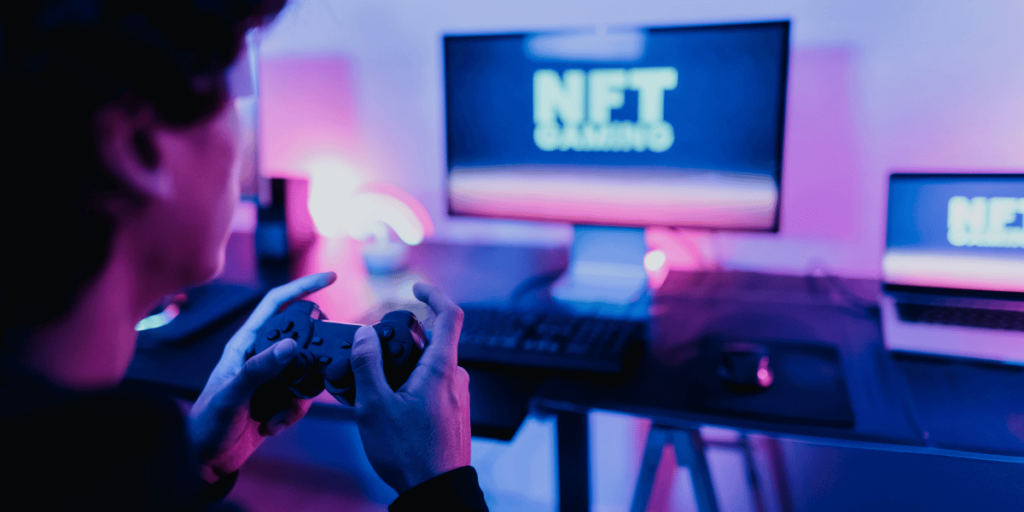The gaming industry is experiencing a significant evolution, largely driven by the transformative power of blockchain technology. This innovation is reshaping how games are developed, played, and monetized, bridging the gap between gaming and decentralized technology. Here’s a look at seven significant ways blockchain is revolutionizing gaming.
1. Ownership of In-Game Assets
One of the most appealing aspects of blockchain in gaming is the genuine ownership it offers players. Through blockchain technology, players can buy, sell, and trade in-game assets as NFTs (non-fungible tokens). This means players truly own their characters, skins, weapons, and other items. Unlike traditional games, where developers retain control over assets, blockchain allows items to be securely stored and freely transferred, providing players with greater control and tangible value.
2. Play-to-Earn Models
Blockchain games are leading the charge in the “play-to-earn” movement, where players can earn cryptocurrency or NFTs by completing in-game tasks or achieving milestones. This model has attracted millions of players worldwide, enabling them to monetize their time and skills in ways traditional gaming never could. Games like Axie Infinity and The Sandbox have pioneered this approach, creating vibrant virtual economies where players can earn simply by playing.

3. Transparency and Fair Play
Blockchain enhances transparency and fairness in gaming—an area that has often frustrated players. With its decentralized ledger, blockchain makes all game transactions and rules public, allowing players to trust that outcomes are not manipulated by developers or third parties. This level of transparency fosters confidence, ensuring that games are genuinely fair and tampering-free.
4. Interoperability Between Games
In traditional gaming, assets are typically confined to a single game or platform. Blockchain enables interoperability, allowing players to transfer assets and currencies across multiple games. For instance, a sword or character acquired in one blockchain game could be used in another, provided both are built on compatible blockchains. This opens up new levels of continuity and freedom for players’ gaming experiences.
5. Enhanced Security and Privacy
Blockchain secures all in-game transactions through cryptographic encryption, significantly reducing the risk of hacking or fraud. Unlike centralized gaming databases that are vulnerable to breaches, blockchain’s decentralized nature means no single entity controls all the information, making it much harder for hackers to gain access. Additionally, this enhances player privacy, as users need to share less personal information to engage with blockchain games.
6. Decentralized Game Economies
Blockchain facilitates the creation of fully decentralized in-game economies, where players wield greater influence over asset value and distribution. Instead of a central company dictating prices, players can create, buy, and sell assets, effectively setting their own market conditions. This decentralization grants players a new level of agency, contributing to a more immersive and economically rich gaming experience.
7. Community Governance
In many blockchain games, players can take on governance roles, allowing them to shape the game’s development and policies. This might include voting on new updates, changes to gameplay, or the allocation of resources within the game. For example, games built on decentralized autonomous organizations (DAOs) enable community members to actively participate in decision-making, giving players a sense of investment and community in the game’s future.
Conclusion: Blockchain is Rewriting the Rules of Gaming
The integration of blockchain technology is transforming gaming from a passive pastime into an interactive, rewarding, and player-controlled experience. With these developments, players not only have more control over their digital assets but can also earn real rewards and engage in a more transparent and fair environment. Blockchain’s role in gaming is still emerging, but one thing is clear: it’s shaping a new frontier where players are truly at the center.



